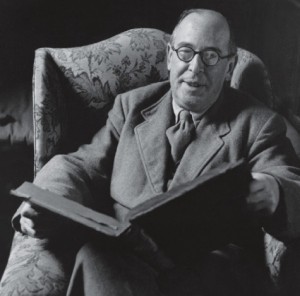 Not all of C. S. Lewis’s writings are explicitly Christian, yet he brings a clarity to any subject that is drawn from his Christian convictions. One of his favorite subjects, naturally, was education, since he spent a lifetime teaching and tutoring students at Oxford and Cambridge. I find this particular Lewis commentary in an essay titled “On the Reading of Old Books,” to ring true. See if you agree.
Not all of C. S. Lewis’s writings are explicitly Christian, yet he brings a clarity to any subject that is drawn from his Christian convictions. One of his favorite subjects, naturally, was education, since he spent a lifetime teaching and tutoring students at Oxford and Cambridge. I find this particular Lewis commentary in an essay titled “On the Reading of Old Books,” to ring true. See if you agree.
I have found as a tutor in English Literature that if the average student wants to find out something about Platonism, the very last thing he thinks of doing is to take a translation of Plato off the library shelf and read the Symposium. He would rather read some dreary modern book ten times as long, all about “isms” and influences and only once in twelve pages telling him what Plato actually said.
The error is rather an amiable one, for it springs from humility. The student is half afraid to meet one of the great philosophers face to face. He feels himself inadequate and thinks he will not understand him. But if he only knew, the great man, just because of his greatness, is much more intelligible than his modern commentator.
The simplest student will be able to understand, if not all, yet a very great deal of what Plato said; but hardly anyone can understand some modern books of Platonism. It has always therefore been one of my main endeavours as a teacher to persuade the young that first-hand knowledge is not only more worth acquiring than second-hand knowledge, but is usually much easier and more delightful to acquire.
In my courses, particularly in the upper-level history courses, I try as much as possible to get students to read the documents from the era and what the people of each era actually said. I don’t avoid using interpretive books also, but I seek those books that are filled with the writings of the principal actors in the history. A good interaction between the historic agents and the modern commentators is a nice mix. I think we need both, yet Lewis is correct in emphasizing the originals. They are essential, so we can judge whether the modern analysts have understood those writings correctly.
This is called real education. We should try it more; students might like it.
